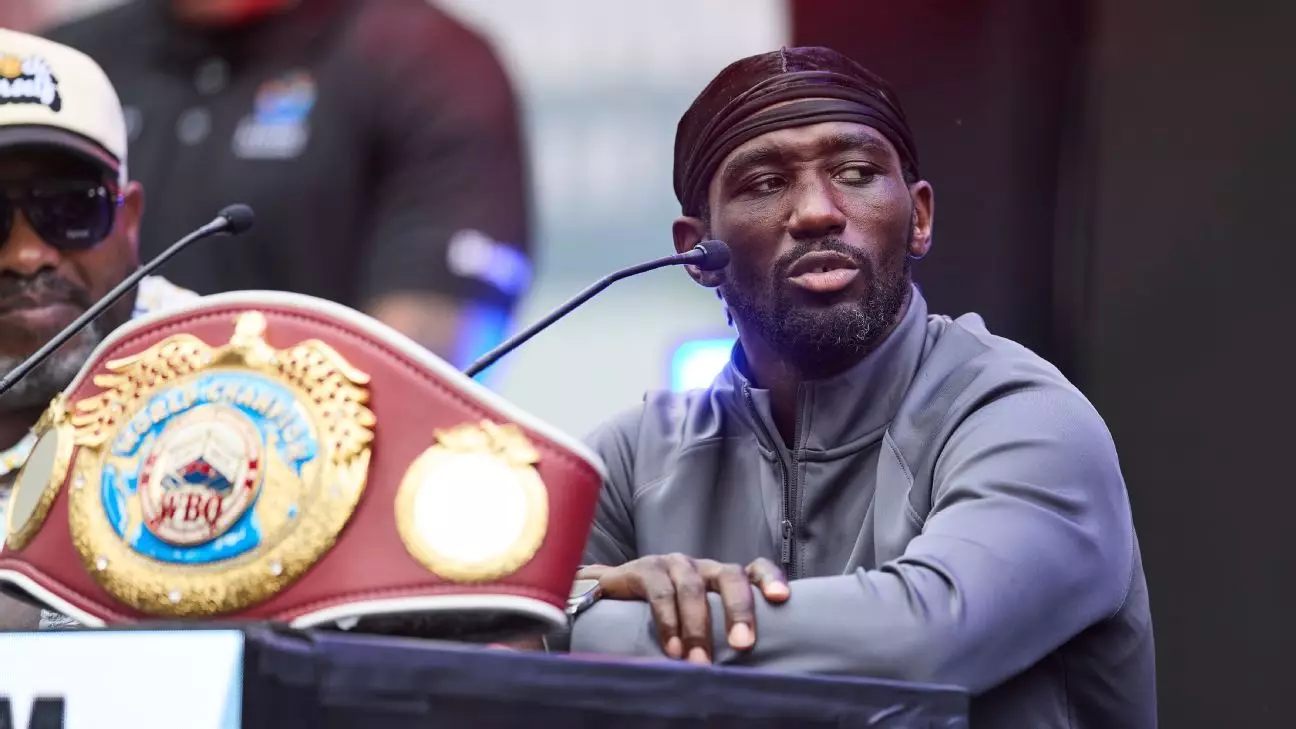In the realm of combat sports, where the boundaries between boxing and mixed martial arts (MMA) often blur, the landscape of potential matchups can get as intricate as the combat itself. Recently, boxing maestro Terence Crawford made headlines by declining a lucrative opportunity to share the octagon with UFC icon Conor McGregor. This decision sparked conversations around not only the motivations behind such profound choices but also the intricacies of athlete identities within their respective sports.
The context for Crawford’s rejection of the McGregor bout lies in a two-fight proposal that surfaced, facilitated by Turki Alalshikh, chairman of Saudi Arabia’s General Entertainment Authority. The agreement suggested a matchup where Crawford would first engage in boxing and subsequently transition to MMA. Speculation suggests that the compensation discussed could reach “hundreds of millions,” a sizable incentive that would tempt most athletes. However, Crawford’s decisive response reveals a pragmatic consideration: his reluctance to engage in an arena that ultimately does not align with his expertise.
Crawford, known for his mastery within the boxing ring, sees engaging in a mixed martial arts bout with McGregor as an unnecessary risk. The 37-year-old champion holds the distinction of being one of only three boxers to have concurrently held major world titles across two weight classes, making his grip on the boxing identity strong and defining. It is this grounded position that adds weight to his refusal, emphasizing not just personal preference but an awareness of competitive vulnerabilities.
Crawford’s decision touches upon the broader issue of athlete identity and the loyalty to one’s sport. In a sport where different disciplines emphasize distinct skill sets, he articulated a poignant perspective: “I’m not getting in no f—ing Octagon with you so you can be kicking and elbowing me!” This statement captures the essence of his understanding and respect for the discipline of MMA, as well as his own boundaries as a boxer.
Conversely, McGregor, with his track record of crossover bouts, has been more accessible to the idea of blending fight styles. His willingness to adapt shows his understanding of marketing appeal and financial opportunity, but it also signals a potential divergence in the philosophies both fighters may hold regarding their craft. McGregor’s approach has garnered massive pay-per-view numbers and audience engagement, showcasing the lucrative nature of cross-discipline encounters—yet such opportunities don’t come without their complications.
Crawford’s respect for McGregor’s sport parallels McGregor’s acknowledgment of Crawford’s expertise. In their discussions, both fighters recognized the inherent disadvantages that each would face upon stepping outside of their own realms. This dynamic plays a crucial role in the interactions of athletes across different disciplines. A deep mutual respect can often set the stage for future collaborations, yet Crawford’s commitment to boxing underscores a level of professional integrity that many fans and commentators admire.
Both fighters, although on different trajectories regarding this specific opportunity, expressed mutual understanding. McGregor expressed no hard feelings towards Crawford, emphasizing what was left on the table in terms of financial gain. Nevertheless, this commentary reflects more about the business of sports rather than a personal grudge. Athletes must navigate both their careers and their identities, balancing lucrative offers with the core values of their sport.
As Crawford continues to solidify his legacy in boxing following a unanimous decision victory over Israil Madrimov, his attention remains on high-stakes matchups—including a potential showdown with the renowned Canelo Alvarez. However, such aspirations are not merely strategic; they represent a commitment to showcase boxing’s purity without dilution from other fighting styles.
Crawford’s choice to decline an MMA fight may come as a surprise to some, yet it reinforces an essential narrative in modern athletics: staying true to one’s craft in the landscape of rapid change. As combat sports continue to evolve, Crawford’s focus remains on boxing, elevating that discipline while respecting the barriers that define it.
Terence Crawford’s decision to forgo a cross-discipline bout signifies more than just a missed financial opportunity; it underscores the complex relationship between an athlete’s identity and the respect for their sport in an environment increasingly driven by crossover appeal.


Leave a Reply